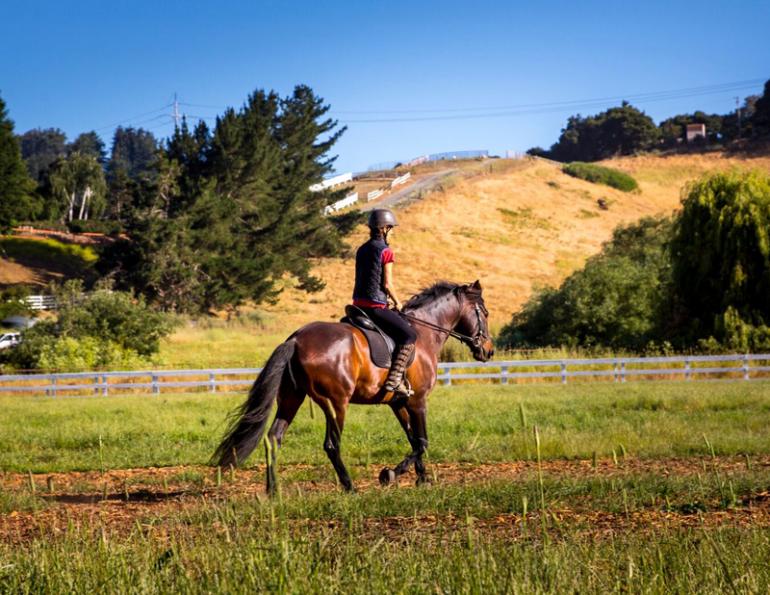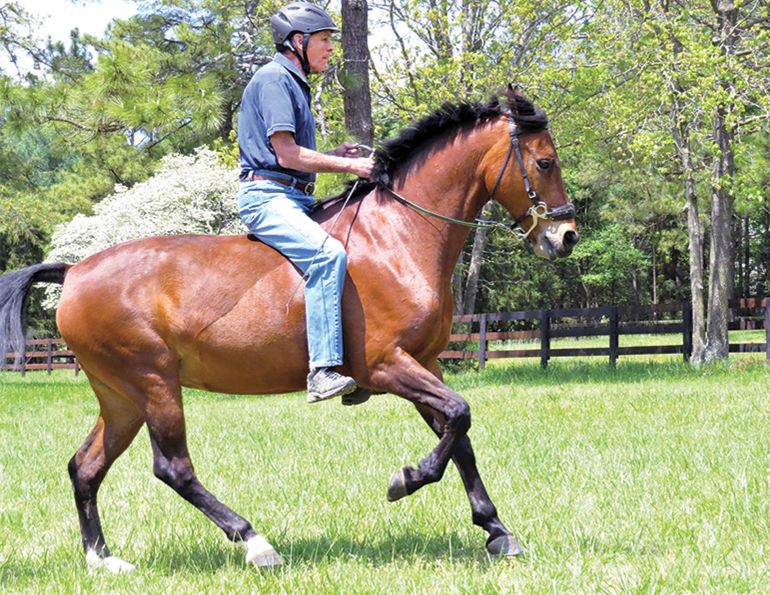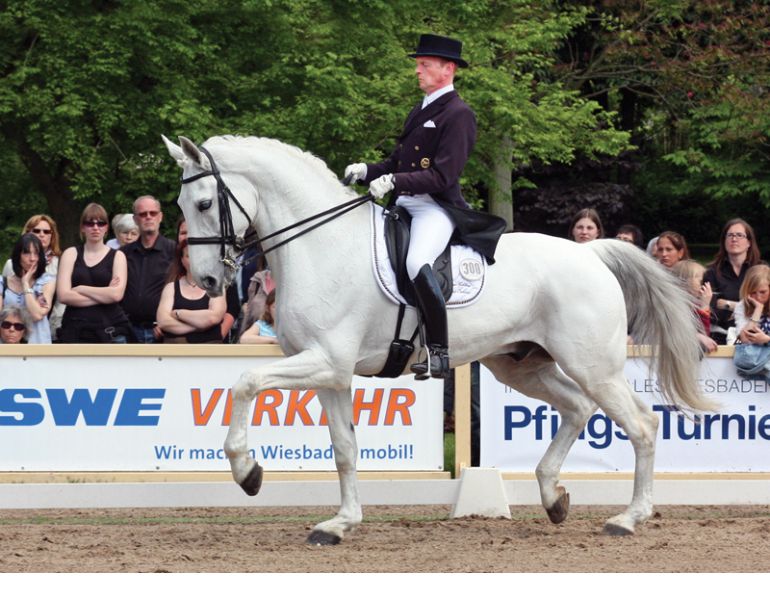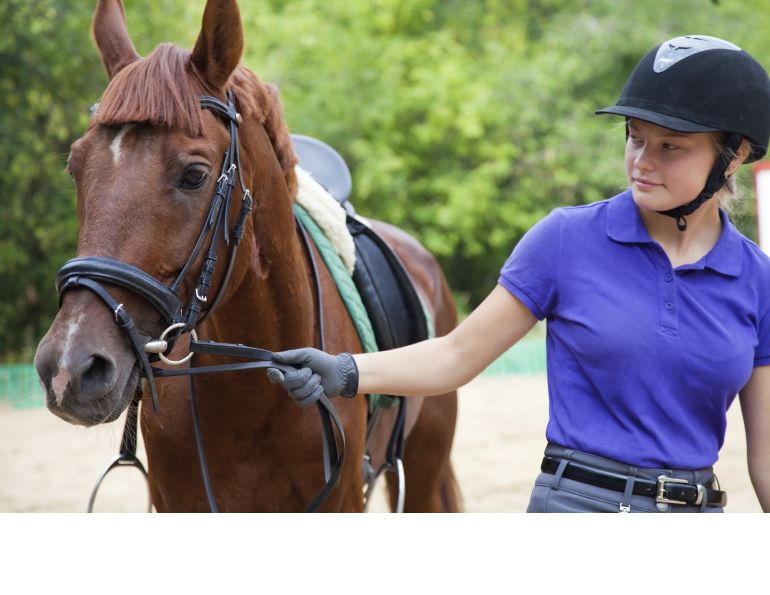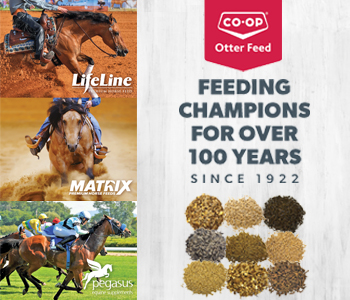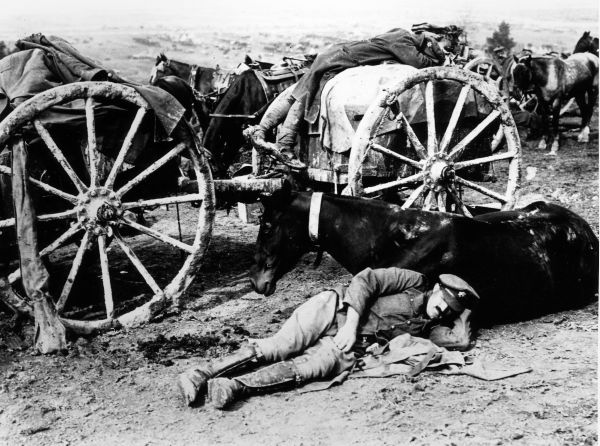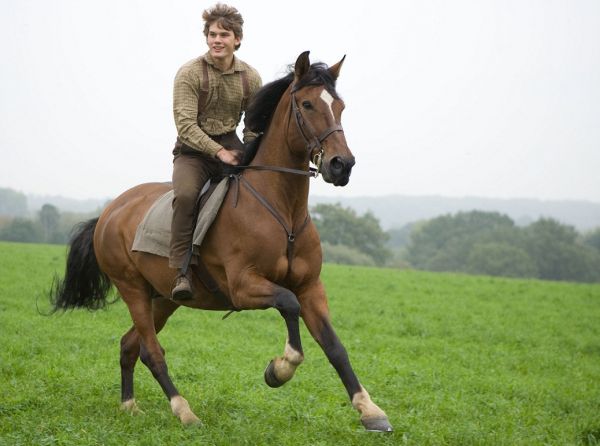By April Clay, M.Ed., Registered Psychologist
You went off course for the second time at the same show, your horse hates liverpools, and there are two of them in your next round. Even though you’ve worked hard all winter, you have yet to see a ribbon. Sometimes in sport, the disappointment ratio seems disproportionately high. It’s easy to become demoralized and want to just give up.
It’s easy to be at our best when circumstances are in our favour; but when things aren’t going well life gets more complicated. Think about watching someone untangle their Christmas lights - you can tell an awful lot about their character from this one simple act.
Some athletes seem to bounce back naturally from disappointment and defeat. These are the ever-calm Christmas light detanglers of the world. You hear about them all the time in the media: this one battled physical injury and still came out on top; that one spent four years at the bottom of the pack and now rules the sport.
Could you come to be regarded as a shining example of resiliency for all to admire? You may be thinking: No, that’s not me, I’m just not that kind of rider even though I would like to be. That’s your current opinion of yourself, but you can change it through commitment. Most athletes don’t start out being champions of toughness, rather, over time they develop skills and specific ways of thinking that ensure resilience.
Riders who have never invested in their own mental training will cope as well as the next person. They possess “ordinary” skills that will assist them in coping to a certain level. On the other hand, those who train specifically to develop their toughness skills can become “extraordinary” in this area; it is very much a learned skill.
When a mistake happens, the resilient rider recognizes it as part of the learning process. Photo: Robin Duncan Photography
#1 - Adjust your perspective
Somehow, our cultural view of success has come to mean straight, upward progress. But this view is not only inaccurate; it can be downright harmful. The reality is that the road to success is not always pretty. It’s quite often messy and incredibly variable. Athletes who choose to embrace a different definition of progress have a distinct advantage.
Karen, a beginning rider but a long-time athlete, has found this concept extremely helpful. “I started out being very frustrated with every little mistake or dip in my progress, probably because I am a bit of a perfectionist. But then I decided to see all my mistakes as advancements. Every time a mistake happened, I reminded myself how I just moved along my own personal learning curve.”
Think about changing your expectations of your sporting experience. It’s not that you want to think about errors or feel like you are inviting them, but at least acknowledge their possibility. This way, adversity becomes something you know will arrive sooner or later, because it’s part of the package. If you have psychologically accepted this as part of the landscape, it won’t surprise you. You’ll be more likely to respond with: Oh, I knew you would be visiting sooner or later. No big deal, I will find a way to get to the other side. So don’t just aim to win; aim to be an exceptional athlete. This can and should include seeing yourself as a person who meets adversity with open arms.
Another way to joggle your perspective is to think of all your athletic experiences on a continuum. You have experiences ranging from very bad all the way to very good. Everyone has this range of experience, and each of these experiences helps to develop our knowledge base. In times of trouble, remind yourself that there are other (and more positive) representations of you as a rider. Consciously revisit a predetermined selection of these positive memories. Stop and focus on remembering those positive experiences, and how the emotional resonance felt when you first had the experience. It is likely that in the storm of a crisis you lost confidence and forgot what you are capable of. This technique will remind you of your range as a rider in a sensory way. It is recommended that you “load up” by giving yourself three positive memories for the one bad experience you are currently having.
#2 - Redirect your energy
When anger and frustration build and you do nothing, they will likely make your performance deteriorate rapidly. While you can’t do anything directly to change your feelings in the moment, you can start to shift that energy to a different place, a more productive place that fuels your performance instead of draining it until you are depleted.
If you find yourself in the midst of a setback, decide that you will take the energy of frustration and channel it into a solution. It may seem like a simple response, but changing your intention is very powerful. You are directing your energy toward a goal instead of noticing only the quality of that energy. Consider as well that the same physiological responses are involved in both anxiety and excitement. Both will increase your heart, perspiration, and respiration rates. Both will even induce mild feelings of nausea. This is good news for you. It means if you shift your perception of your bodily responses and energy, you can land yourself in a more productive state. Challenge yourself to see your setback and its corresponding energy in a new way. Take advantage of that heightened adrenaline and channel it for good.
#3 - Change your language
Often when adversity strikes, we think: Why me? What did I do to deserve this? Or: Oh no, not again, I’ll never make it through.
Janet, an adult amateur hunter rider, had to admit she was guilty of such inner dialogue. “I knew I automatically took a defeatist mentality. Then I would start feeling physically tired and literally stop riding. I found a huge difference when I began to plan my responses to those tough times. The different thoughts helped guide me to better outcomes.”
Ask yourself what your default thinking is in times of disappointment. Then consciously decide what thoughts you will replace these with. Try: How can I meet this challenge? What do I need to solve this problem? Or even: Great, a setback, now I have a chance to really display my skill. This kind of thinking has power and direction in it, and will boost your energy level to boot.
Building resilience in your riding will take effort and maintenance, but the rewards will be well worth your effort. And don’t think you need to restrict your toughness quest to the barn. In your everyday wanderings, look for opportunities to practice being that bouncing ball. Stuck in traffic? Dealing with a tough situation at work? Family challenging you? All are key points of choice, chances to train yourself to meet challenges with grit. The more you repeat your resilient responses, the more buoyant and bouncy you’ll become. Nothing will be able to keep you down.
To read more articles by April Clay on this site, click here.
Main photo: Exceptional athletes are very resilient; they seem to bounce back from adversity without missing a beat. Robin Duncan Photography





